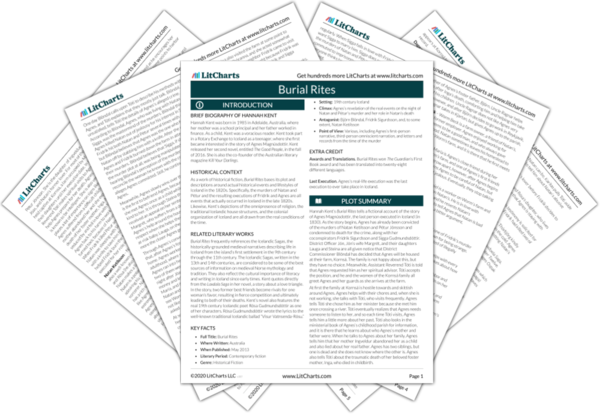Jón is 's husband, and 's father, a District officer in his region of Iceland, and the tenant of Kornsá. Jón accepts into his household on 's request, feeling it is his duty to do so as a District Officer. Jón generally does not speak to Agnes, but he is often called to Blöndal's farm to make decisions regarding her case.
